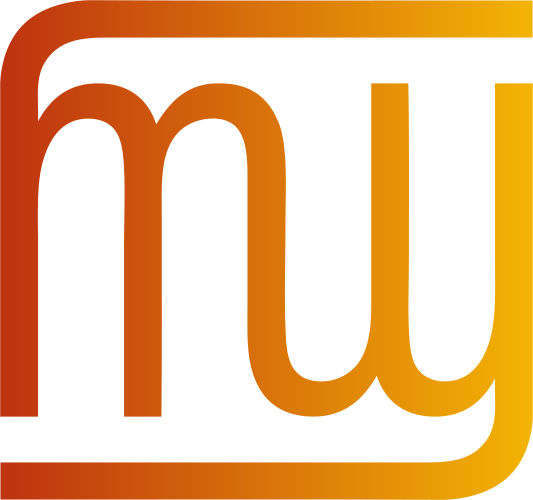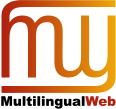
The W3C Internationalization (I18n) Activity works with W3C working groups and liaises with other organizations to make it possible to use Web technologies with different languages, scripts, and cultures. From this page you can find articles and other resources about Web internationalization, and information about the groups that make up the Activity. Read also about opportunities to participate and fund work via the new Sponsorship Program.
What the W3C Internationalization Activity does
Selected quick links
Selected quick links
Selected quick links
MultilingualWeb Pisa report now available
A report summarising the MultilingualWeb workshop in Pisa is now available from the MultilingualWeb site. Alongside the summaries are links to slides, video recordings, and the IRC log for each speaker and the discussion sessions.
Entitled “Content for the Multilingual Web”, the workshop surveyed and shared information about currently available best practices and standards that can help content creators and localizers address the needs of the multilingual Web. Attendees also heard about gaps that need to be addressed, and enjoyed opportunities to network and share information between the various different communities involved in enabling the multilingual Web.
The page dedicated to outcomes of the Pisa workshop also points to the program and items in the social media related to the workshop.
Preparations have now begun for the next workshop, to be held in Limerick, Ireland, on September 21-22. It will be co-located with the 16th Annual LRC Conference. See the Call for Participation to register.
W3C Workshop, Call for Participation: A Local Focus for the Multilingual Web

21-22 September 2011, Limerick, Ireland. Co-located with the 16th Annual LRC Conference and hosted by the University of Limerick.
The MultilingualWeb project is looking at best practices and standards related to all aspects of creating, localizing and deploying the Web multilingually. The project aims to raise the visibility of existing best practices and standards and identify gaps. The core vehicle for this is a series of four events which are planned for the coming two years.
After two highly successful workshops in Madrid and Pisa, this workshop will continue to investigate currently available best practices and standards aimed at helping content creators, localizers, tools developers, and others meet the challenges of the multilingual Web.
Participation is free. We welcome participation from both speakers and non-speaking attendees. For more information, see the Call for Participation
MultilingualWeb Pisa slides, video recordings, and IRC notes now available
Slides, video recordings of speakers and IRC notes for the MultilingualWeb workshop in Pisa are now available from the MultilingualWeb site. There are also pointers to blog posts, tweets and photos related to the workshop.
Entitled “Content for the Multilingual Web”, the workshop surveyed and shared information about currently available best practices and standards that can help content creators and localizers address the needs of the multilingual Web, including the Semantic Web. Attendees also heard about gaps that need to be addressed, and enjoyed opportunities to network and share information between the various different communities involved in enabling the multilingual Web. Just over a hundred people attended.
Work is under way on a summary report for the workshop, which will be announced in due course.
Building on the success of the Madrid and Pisa workshops, preparations have now begun for the next workshop, to be held in Limerick, Ireland, in September 2011. A Call for Participation will be issued soon.
Thanks to VideoLectures for hosting the videos, and CNR for the recording.
New translations into German
Darstellungsvermögen (Display capabilities)
Datum und Uhrzeit (Dates and Time)
Datumsformate (Date formats)
These articles were translated into German thanks to Steffen Herkert, Nico Kutscherauer, and Tobias Klevenz (data2type GmbH).
New translations into Russian and Ukrainian
Ukrainian:
byte-order mark (BOM) в HTML (The byte-order mark (BOM) in HTML)
Нормалізація в HTML і CSS (Normalization in HTML and CSS)
Символи або розмітка? (Characters or markup?)
Заміна кодування (X)HTML сторінки на UTF-8 (Changing (X)HTML page encoding to UTF-8)
Використання екранованих символів в розмітці і CSS (Using character escapes in markup and CSS)
Russian:
byte-order mark (BOM) в HTML (The byte-order mark (BOM) in HTML)
Нормализация в HTML и CSS (Normalization in HTML and CSS)
Символы или разметка? (Characters or markup?)
Замена кодировки (X)HTML страницы на UTF-8 (Changing (X)HTML page encoding to UTF-8)
Использование экранированных символов в разметке и CSS (Using character escapes in markup and CSS)
These articles were translated thanks to Alexandr Shlapak.
Updated article: Setting language preferences in a browser
The whole article was largely rewritten. The list of browsers was reduced to just major browsers, but additional information on these was provided and the information was brought up to date. Further additions include a comment on IP-based negotiation, and a new section on levels of detail in language tags.
Translators should consider retranslating the whole article.
New translations into Romanian
Notiuni de baza despre site-ul W3C I18n (Getting Started with the W3C I18n site)
Limba pe Web (Language on the Web)
These articles were translated into Romanian thanks to Echipa Traduceri-W3.
New translations into German
Umgang mit Zeichencodierungen in HTML und CSS (Handling character encodings in HTML and CSS)
Zeichencodierungen: grundlegende Konzepte (Character encodings: Essential concepts)
Eine Zeichencodierung wählen und anwenden (Choosing & applying a character encoding)
Das BOM (byte-order mark) in HTML (The byte-order mark (BOM) in HTML)
Normalisierung in HTML und CSS (Normalization in HTML and CSS)
These articles were translated into German thanks to Gunnar Bittersmann.
New translations into Russian and Ukrainian
Ukrainian:
Вибір і застосування кодування (Choosing & applying a character encoding)
Призначення кодування символів в HTML (Declaring character encodings in HTML)
Призначення кодування символів в CSS (Declaring character encodings in CSS)
Кодування символів: Основні поняття (Character encodings: Essential concepts)
Russian:
Выбор и применение кодирования (Choosing & applying a character encoding)
Назначение кодировки символов в HTML (Declaring character encodings in HTML)
Назначение кодировки символов в CSS (Declaring character encodings in CSS)
Кодирование символов: Основные понятия (Character encodings: Essential concepts)
These articles were translated thanks to Alexandr Shlapak.
Don’t forget to register for the W3C MultilingualWeb Workshop in Pisa

If you are planning to attend the W3C MultilingualWeb Workshop in Pisa, Italy on 4-5 April 2011 and you haven’t yet registered, please do so as soon as possible to secure a place. The workshop is free and open to the public.
The program is packed with interesting speakers and we are looking forward to another great workshop, with plenty of excellent networking opportunities.
If you have yet to book a hotel, don’t forget to check out the list of hotels with specially negotiated prices.
For more information see the Call for Participation.
The MultilingualWeb project, funded by the European Commission and coordinated by the W3C, is looking at best practices and standards related to all aspects of creating, localizing and deploying the multilingual Web. The project will raise visibility of what’s available, identify gaps, and provide networking opportunities via a series of four events, over two years.
W3C® liability, trademark and permissive license rules apply.
Questions or comments? ishida@w3.org